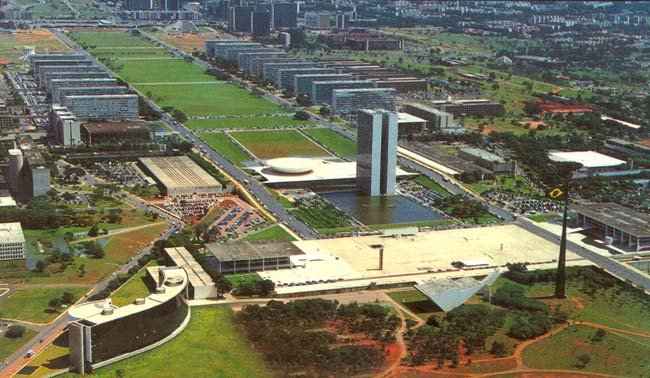Political tension and security debates have intensified in Brasília as Congress, the Supreme Court, and the Executive navigate simultaneous crises and strategic decisions. Relations between the presidents of the Chamber and the Senate have cooled, slowing legislative coordination, while pressure mounts over the Anti-Faction Bill, whose rapporteur faces calls for replacement after multiple conflicting drafts. At the same time, former president Jair Bolsonaro’s legal situation worsened with the Supreme Court’s rejection of his appeal, deepening fractures within his political base. Against this backdrop, President Lula convened former governors who now serve as ministers to reassess national public security policy, seeking unified perspectives as violent crime and organized factions remain central concerns for the government.
This Content Is Only For Subscribers
To unlock this content, subscribe to INTERLIRA Reports.
Strained Relationship
Although they began their terms aligned after being elected on 1 February, the Federal Chamber President, Hugo Motta (Republicanos), and the Senate President, Davi Alcolumbre (União Brasil), have grown apart, according to congressional allies. Tensions increased after the Senate overturned the Shielding Amendment (PEC). While there has been no rupture, coordination has weakened: they still communicate at events and by phone, but joint political action has diminished. This misalignment has slowed the progress of key proposals, leaving agendas stalled after approval in one House. Leaders of the centrist bloc warn that this dynamic may weaken Congress in negotiations with other branches of government.
Change in Rapporteur
The PT leader in the Chamber, Lindbergh Farias, will propose to the House president, Hugo Motta, the replacement of the Anti-Faction Bill’s rapporteur, Guilherme Derrite (PP). Lindbergh argues that Derrite created uncertainty by presenting four different versions of his report and that the current text is not suitable for voting. Even after multiple revisions, the proposal continues to face resistance from the government, the “Centrão”, and the opposition. The PT leader points to sensitive elements that remain in the draft, such as broad asset forfeiture provisions, and to a reduction in Federal Police roles in the latest version, both considered unacceptable by the party.
Appeal Denied
The Supreme Federal Court (STF) published on Monday (17/11) the official minutes of the First Panel’s unanimous decision rejecting the appeal of former president Jair Bolsonaro (PL) and other defendants in the central core of the coup plot investigation. The publication formalizes the ministers’ votes upholding the conviction issued by the panel. On Wednesday (12/11), Bolsonaro completed one hundred days under house arrest, amid fears of being transferred to a prison facility and facing growing political isolation. The past months have seen internal disputes within his group, ranging from disagreements over Donald Trump’s tariff hike—where Eduardo Bolsonaro (PL-SP) had a central role—to tensions in Santa Catarina surrounding the 2026 Senate race, involving Carlos Bolsonaro (PL-RJ).
Meeting on Security
President Lula (PT) held a meeting on Thursday (13/11) at the Planalto Palace with ministers who previously served as governors to discuss public security. The meeting took place amid intense discussions in the Executive and Congress regarding the anti-faction bill, which was scheduled for analysis in the Chamber but ultimately postponed. Of the nine ministers present, six had governed their states and dealt directly with public security. According to participants, the objective was to conduct a broad assessment of the topic. Lula sought to gather the views of these ministers to help shape the administration’s strategy moving forward.
Inflation
Financial market economists have reduced their 2025 inflation estimate from 4.55% to 4.46%. This expectation is part of the “Focus” bulletin, released on Monday (17/11) by the Central Bank (BC), based on a survey conducted with more than 100 financial institutions last week. This is the first time since December of last year that the projection of bank economists for 2025 has fallen below the 4.5% ceiling of the inflation targeting system. This means that, if the expectation is confirmed, there will be no “blowout” of the inflation target this year. In the full year of 2024, and in the twelve months up to June of this year, inflation was above the ceiling of the target system.
Analysis:
The current political landscape in Brasília reveals a convergence of institutional strain and security-driven urgency, creating a complex environment for decision-making. The cooling relationship between the presidents of the Chamber and the Senate has eroded the legislative coordination that typically enables Congress to move priority agendas. With proposals stalling after advancing only in one chamber, congressional leaders worry that this fragmentation weakens their leverage in negotiations with the Executive and the Judiciary.
The dispute surrounding the Anti-Faction Bill further illustrates this instability. Guilherme Derrite’s succession of divergent drafts has generated confusion among legislators and sharpened criticism from across the political spectrum. Calls for his replacement reflect concerns over both the content of the latest text—particularly asset forfeiture mechanisms and perceived reductions in Federal Police authority—and the procedural inconsistency that undermines confidence in the bill’s direction.
Meanwhile, Jair Bolsonaro’s deepening legal problems add another layer of volatility to the national political climate. The Supreme Court’s definitive rejection of his appeal reinforces the trajectory of his judicial vulnerability, while internal fractures within his circle point to diminished cohesion and influence.
Sources: A Folha de SP [1], [2], [3], [4]; G1 [1], [2]; O Globo.




